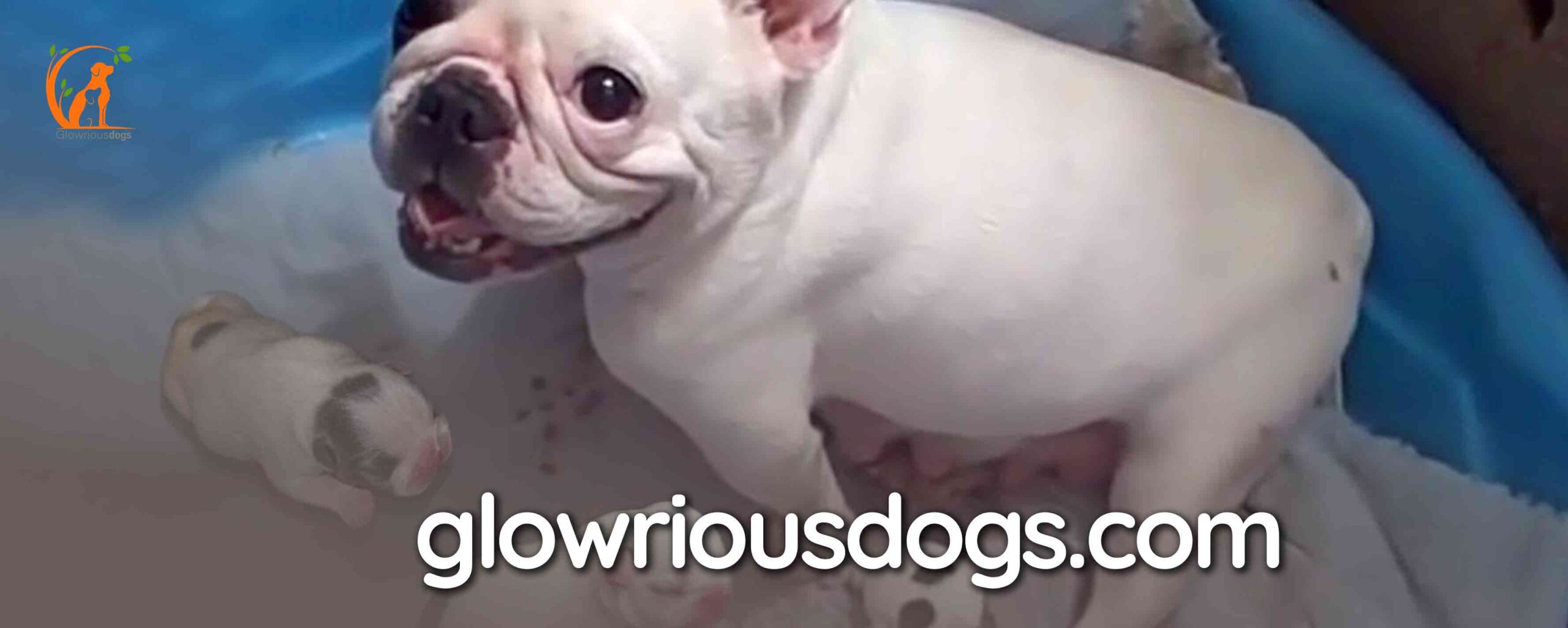Yes, French Bulldogs can breed naturally without any assistance or intervention. French Bulldogs have the ability to reproduce naturally without any difficulties.
They are a breed that does not require artificial insemination or medical assistance for mating purposes. French Bulldogs have a unique body structure and may face some challenges during the breeding process due to their short muzzle and narrow hips.
However, with proper care and monitoring, they can successfully breed and produce healthy offspring. It is important to ensure responsible breeding practices to prevent any potential health issues in the puppies. French Bulldogs have a natural ability to reproduce, allowing them to continue their lineage naturally.
Factors Affecting Natural Breeding In French Bulldogs
French Bulldogs, with their adorable appearance and affectionate nature, have become increasingly popular as pets. However, their unique physical characteristics can pose challenges when it comes to natural breeding. Let’s explore the factors that affect the ability of French Bulldogs to breed naturally.
Short nose and respiratory problems
One of the defining features of French Bulldogs is their short nose, also known as a brachycephalic muzzle. While this characteristic adds to their charm, it can lead to respiratory problems. The compressed air passages make it difficult for them to breathe normally, particularly during exercise or high temperatures.
Limited airflow through the nostrils
French Bulldogs often face the issue of narrowed nostrils, which restricts the airflow through their nasal passages. This limitation makes it challenging for them to engage in physical activities, including mating. The lack of proper oxygen supply can cause discomfort and even lead to fainting or collapse.
Narrowed trachea
In addition to the narrowed nostrils, French Bulldogs commonly have a narrow trachea, which is the windpipe connecting their throat to the lungs. This restricted airway can hinder the breathing process during breeding, as it leaves little room for air to pass through.
Body structure and conception difficulties
The body structure of French Bulldogs can contribute to difficulties with conception. Their stocky build, combined with their characteristic large head size, can make it challenging for male French Bulldogs to efficiently mount the female during mating.
Small pelvis and large head size
Female French Bulldogs often have a relatively small pelvis, making it harder for them to accommodate the larger head size of their puppies during birth. This physical mismatch can result in complications during the delivery process, increasing the likelihood of requiring a Caesarean section (C-section).
Increased risk of C-section
Due to the aforementioned factors, French Bulldogs have an increased risk of needing a C-section. The puppies’ health and the mother’s well-being are top priorities, and a C-section may be necessary to ensure a safe and successful delivery.
Heat sensitivity and breeding challenges
French Bulldogs are also known for their heat sensitivity, which can greatly affect their breeding capabilities. These dogs struggle to regulate their body temperature effectively, especially in warm environments. Extreme heat can result in decreased fertility and may even render them temporarily infertile.
Inability to regulate body temperature effectively
The inability to regulate body temperature effectively is another challenge in natural breeding for French Bulldogs. Their brachycephalic nature, combined with their compromised respiratory system, makes it difficult for them to dissipate heat and cool down. Hence, mating during hot weather can be detrimental to their health.
Limited breeding seasons
Unlike some other dog breeds, French Bulldogs have limited breeding seasons. They come into heat only twice a year, making it crucial to carefully plan and time their breeding to maximize the chances of successful mating.

Breeding Difficulties And Potential Solutions
Artificial Insemination as an Alternative
Breeding French Bulldogs naturally can often be challenging due to various factors, including their body structure and size. Fortunately, artificial insemination (AI) has emerged as a viable alternative, offering a range of benefits and overcoming many obstacles faced during natural breeding. AI provides a safer and more efficient way to achieve successful breeding outcomes, reducing the physical strain on the female dog and significantly increasing the chances of successful implantation. Let’s delve into the advantages and the process of artificial insemination in French Bulldogs.
Benefits of AI in French Bulldogs
Artificial insemination brings a host of benefits for breeding French Bulldogs, mitigating the difficulties encountered in natural breeding methods.
Increases Breeding Success Rate
The utilization of AI greatly enhances the breeding success rate in French Bulldogs. This technique allows breeders to select the most compatible stud without geographical limitations, as the semen can be preserved and transported. Moreover, AI eliminates the risks associated with unsuccessful mating attempts, such as stress and injuries for both the male and female dogs, ultimately leading to improved breeding success.
Reduces Physical Strain on the Female Dog
The fragile nature of French Bulldogs may make natural breeding quite strenuous for the female dog. This breed often experiences difficulties during mating due to their compact size and unique anatomical features. Artificial insemination eliminates the need for physical interaction between the male and female dog, reducing the risk of injuries, discomfort, or distress during the breeding process. By bypassing the need for physical mating, AI ensures a safer and more comfortable experience for the female dog.
Process of Artificial Insemination
The process of artificial insemination involves several crucial steps performed with precision and care.
Collection and Preparation of Semen
In artificial insemination, semen is collected from the male dog through methods such as manual stimulation or the use of artificial vagina. The collected semen is then carefully evaluated for quality, sperm count, motility, and morphology. Once assessed and appropriately prepared, it can be preserved for later use or immediately utilized for insemination.
Timing of Insemination
Ensuring the timing of insemination is crucial for the success of the procedure. It is essential to determine the optimal time for insemination by tracking the female dog’s estrus cycle through methods such as hormone analysis, vaginal cytology, or behavioral observations. This accuracy in timing helps maximize the chances of successful fertilization.
Techniques Used for Successful Implantation
Various techniques are utilized to ensure successful implantation in French Bulldogs during artificial insemination. These techniques include intrauterine insemination (IUI), where the semen is directly introduced into the uterus, or transcervical insemination (TCI), which involves passing a catheter through the cervix to deposit semen into the reproductive tract. The choice of technique depends on several factors, including the breeder’s expertise and the specific needs of the female dog.
Artificial insemination serves as a reliable alternative for breeding French Bulldogs, providing numerous advantages over natural breeding methods. With increased breeding success rates and reduced physical strain on the female dog, AI offers a safer and more efficient means of achieving successful breeding outcomes. By understanding the process and techniques involved, breeders can utilize artificial insemination to overcome the breeding difficulties often encountered in French Bulldogs.
The role of genetics in breeding challenges
The genetic traits of French Bulldogs can affect their ability to breed naturally. Some dogs may experience difficulty during mating due to physical limitations or structural issues. The brachycephalic nature of French Bulldogs, characterized by their short, pushed-in noses and compact bodies, can make the breeding process more complex. It is crucial to understand these limitations and work with a veterinarian or a professional breeder to ensure successful breeding.
Health issues related to the breed’s genetic makeup
French Bulldogs are prone to several health issues that can impact their breeding ability and the health of their offspring. Some common genetic health problems include respiratory difficulties, eye and ear issues, skin allergies, and skeletal deformities. These conditions can affect the overall well-being of the dog and may pose risks during pregnancy and delivery. It is essential to be aware of these potential health problems and take necessary precautions when breeding French Bulldogs.
Understanding the importance of genetic testing
Genetic testing plays a vital role in responsible breeding practices for French Bulldogs. By conducting genetic tests, breeders can identify potential genetic disorders and screen for carrier status in their dogs. This information enables breeders to make informed decisions about selecting suitable mates and reducing the risk of passing on harmful genetic traits to offspring. Genetic testing helps breeders prioritize health and ensure the production of healthier and genetically sound puppies.
Selective breeding for healthier offspring
One key approach in breeding French Bulldogs naturally is selective breeding. By carefully selecting suitable mates with fewer health risks, breeders can increase the chances of producing healthier offspring. This involves thorough research, considering the health certifications and pedigree records of potential mates. Responsible breeding practices prioritize improving the breed’s overall health and minimizing the occurrence of genetic health issues.
Identifying suitable mates with fewer health risks
When it comes to finding suitable mates for breeding French Bulldogs, it is essential to prioritize health and minimize the risks associated with certain genetic traits. Breeders must evaluate potential mates based on their health certifications, pedigree records, and lineage history. By choosing dogs with fewer known health issues, breeders can increase the likelihood of producing healthy puppies and healthier breeding dogs in subsequent generations.
Evaluating health certifications and pedigree records for breeding
Evaluating health certifications and pedigree records is crucial in responsible breeding practices. Breeders should verify health certifications such as hip and elbow scores, eye and heart clearances, and genetic testing results. Pedigree records help provide insight into familial health history and allow breeders to identify any recurring health issues that may need attention when selecting mates.
Responsible breeding practices
Responsible breeding practices involve much more than just mating dogs. It requires a commitment to the health and well-being of the breed. Breeders should prioritize the overall health, temperament, and genetic soundness of the French Bulldogs they breed. They should also be knowledgeable about breed-specific health problems, genetics, and the importance of maintaining breed standards.
Importance of pre-breeding health screening
Pre-breeding health screening is a vital component of responsible breeding practices for French Bulldogs. Before initiating the breeding process, both the male and female dogs should undergo a thorough health screening conducted by a veterinarian. This screening includes evaluating overall health, checking for genetic disorders, assessing reproductive health, and identifying any underlying conditions that may affect the breeding process or the well-being of the offspring.
Regular veterinary check-ups for breeding dogs
Regular veterinary check-ups are crucial for breeding dogs to ensure their ongoing health and well-being. These check-ups include routine examinations, vaccinations, parasite control, and monitoring the reproductive health of the dogs. Regular visits to the veterinarian allow breeders to detect any potential health issues early on and take necessary steps to address them, ensuring the dogs are fit for breeding.
Monitoring proper nutrition and exercise for breeding dogs
The nutrition and exercise regime of breeding dogs are essential factors in maintaining their health and fertility. Breeders should provide a well-balanced and appropriate diet tailored to the individual needs of the dogs. Regular exercise helps maintain a healthy body weight and supports overall fitness. Monitoring nutrition and exercise ensures that the breeding dogs are in optimum condition for successful mating and healthy pregnancies.
Conclusion
French Bulldogs can breed naturally, but there are several considerations that need to be taken into account. Their unique physical characteristics, such as a large head and narrow hips, may pose challenges during the breeding process. It is crucial to ensure that both the male and female dogs are in good health and free from any genetic or health issues that could affect their ability to reproduce.
Additionally, the services of a professional breeder or a veterinarian specializing in reproductive health can greatly assist in ensuring a successful breeding. Patience and careful monitoring are essential throughout the process, as not all breeding attempts may result in successful pregnancies.
Ultimately, understanding the specific needs and limitations of French Bulldogs can help breeders make informed decisions and have the best chance of natural breeding success.
Frequently Asked Questions For Can French Bulldogs Breed Naturally
Can French Bulldogs Mate And Give Birth Naturally?
Yes, French Bulldogs can mate and give birth naturally without any assistance.
Do French Bulldogs Have To Be Artificially Bred?
No, French Bulldogs do not have to be artificially bred.
What Dogs Can’T Breed Naturally?
Some dog breeds cannot breed naturally due to differences in their size or physical characteristics.
Do French Bulldogs Have To Be Artificially Inseminated To Get Pregnant?
French Bulldogs can become pregnant naturally; they do not need to be artificially inseminated.











